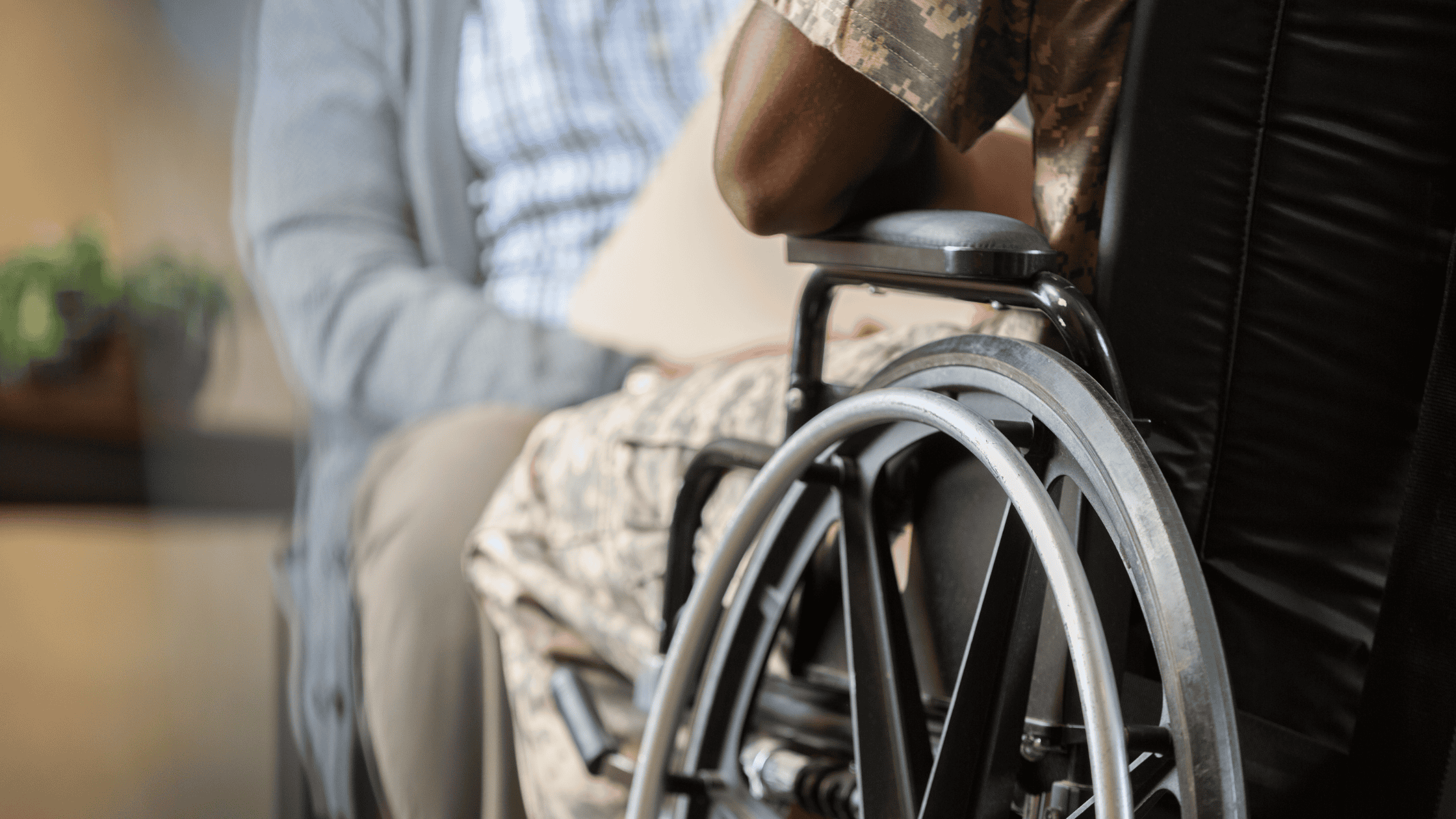Inside the VA: Tackling Disability Claims Processing Delays and Appeals Backlogs
The Department of Veterans Affairs (VA) stands as a cornerstone of support for the millions of men and women who have donned the uniform of the United States military, offering a lifeline through a wide array of benefits and services designed to honor their sacrifices. Yet, beneath its noble mission, the VA has found itself grappling with mounting obstacles that threaten to undermine its ability to deliver on these promises.
Recently, the agency has been scrutinized for persistent delays in processing disability claims, a problem compounded by an ever-expanding backlog of appeals. These inefficiencies ripple outward, leaving countless veterans who have already given so much in a state of uncertainty as they await the critical resources they deserve.
As we delve into this pressing issue, this blog post will explore the roots of these challenges, their far-reaching impact on veterans’ lives, and what they signal about the broader state of support for those who have served.
Current State of VA Disability Claims Processing
In Fiscal Year 2025, the VA achieved a notable milestone by processing over one million disability claims faster than ever before. This accomplishment reflects the department’s commitment to improving efficiency and reducing wait times for veterans seeking benefits.
Despite this progress, challenges persist. The VA’s claims backlog includes rating bundle disability compensation and pension claims that require a rating decision. This bundle encompasses initial and supplemental claims for service-connected disabilities and pension claims for veterans.
Appeals Backlog and Its Implications
Beyond initial claims processing, the VA continues to grapple with a substantial appeals backlog. The Board of Veterans’ Appeals (BVA) has faced increasing volumes and complexities in appeals, leading to extended wait times for veterans seeking appellate review. Implementing new legislative measures, such as the PACT Act, has significantly impacted the Board’s workload, with an estimated 86,000 new appeals potentially initiated.
Despite efforts to modernize and streamline processes, the average time to complete an appeal remains lengthy. For instance, in the third quarter of Fiscal Year 2024, the average time to complete a Direct Review appeal was 866 days, while Evidence Submission and Hearing docket appeals took 1,056 and 1,089 days, respectively.
Efforts to Address Backlogs and Delays
To tackle the ongoing backlog and delays in claims processing, the VA has rolled out a series of targeted initiatives in 2025 aimed at streamlining operations and improving response times. These initiatives focus on expanding workforce capacity, enhancing technology infrastructure, and optimizing claims processing systems to handle the growing caseload more efficiently.
A key component of these efforts is the VA’s disability claims processing calculator, which helps veterans estimate the timeframes for their claims. By improving transparency and providing veterans with better tools to track their claims, the VA aims to reduce uncertainty and frustration in the process.
Additionally, the VA has prioritized hiring and training more staff to handle the influx of claims, alongside modernizing digital systems to automate administrative tasks that previously slowed processing. These steps are part of a broader strategy to reduce the backlog and ensure veterans receive the benefits they are entitled to in a more timely manner.
For more details on the latest VA backlog reduction initiatives and to estimate your claim processing time, check out the VA Disability Calculator HERE.
Ongoing Efforts …
The VA’s ongoing efforts to reduce disability claims processing delays and appeals backlogs are critical to ensuring that veterans receive the benefits they have earned in a timely manner. Continued focus on process improvements, technological advancements, and resource allocation is essential to address these challenges effectively. Veterans and stakeholders must remain informed and engaged to navigate the VA benefits administration’s evolving landscape successfully.
Stay connected with us for further updates on veterans’ affairs and the VA’s efforts to improve disability claims processing and appeals.




They process them faster than ever; by denying them, remanding them, demanding unnecessary testing, etc. 9+ years.
All that has to happen is some conservative administrator comes to VHA and your care is done unless it involves life threatening condition or blood tests. They have to do those things to maintain minimum validity and credibility as a healthcare system. They aren’t responsible for your health outcome..no matter how healthy you try to keep yourself. They bare no responsibility for what they do or don’t do. Federal judges need to stop playing defense attorney for these irresponsible crooks working at the Veterans Healthcare Administration.
All someone has to do is start some argument over you or your care at the Veterans Healthcare Administration and that’s the beginning of the end of your presence there. Meanwhile, if it doesn’t involve denial of care, the beaurocracy doesn’t want to get involved. They’re only there to rubber stamp the denial of care. The federal courts… nowhere to be found white people suffer and die. That’s broken government in not so modern anymore America.
Hard to claim this is a functional democracy when the VHA can just fuck people without reprocussions. That’s something you’d see in China and Russia, and the USA thanks to dereliction of duty by courts, Congress, and employees of the rogue executive. Only such brokenness could yield such a terrible result.
Wow. 400,000 people work for VA and hardly ever a rights violation or law violation in 20 years that doesn’t involve just straight crime. That’s pretty impressive. This must be the best government in human history. That or the judiciary is just non-existent. Same thing with the FBI .. not one Fourth Amendment rights violation ever.
Thank you for voting for Musk and Trump for president folks. Already we have a limp penis judiciary and now the orange clown car has come to town, ignoring judges, motivating people at these agencies to do whatever the hell they do or don’t want to do. That’s not good for those who wish to see VA perform their function. Veterans vote themselves healthcare poor. Most of you think simply seeing someone is healthcare so…no wonder that’s all you get.
You could have serious pain problems from spinal disk herniations and they’ll run you around in circles for a decade… and even then probably won’t authorize surgery. This happens nationwide. They’ll send you to “physical therapy” over and over again, throw you canes to massage your own neck, no narcotic pain medication, neverending tricks up their sleeves, gaslighting. And when you leave they act like they don’t understand why. Shame on you for leaving, you’re not responsible for your own health, “oh well” etc etc. This type of treatment should be illegal and considered malpractice and abuse. It’s lawlessness and dishonesty. We can’t even tell there’s a judiciary at all and how is such a setup not a violation of human rights and the law? Basically systemic neglect and malpractice.
Saw someone in there for mental health about 10 years ago, everything was going fine until I got in trouble with the law. It was something petty too.. marijuana. Then the guy started making bogus assertions, exaggerated claims, and in general used his phoney baloney philosophy as a weapon. At one point things almost came to blows. Eventually I left. That asshole still works for VA. They just transfer them… doesn’t matter if they’re responsible for derailing your care or your relationship with that institution. They’ll keep them around which etches the disgrace and dishonor in stone forever. And they’ll never apologize for a thing! You’re supposed to just somewhere else or act like it never happened so that some asshole can continue to have a career!
In other democratic nations they have viable, functional, and credible socialized heathcare systems. In the USA you have a patchwork of exclusive systems that are supposed to just magically cover everyone at most points in life. News flash: They don’t, and they’re designed to be that way. And there’s discrimination built into all those systems plus dysfunctionality. Still millions go without healthcare from time to time, denial of care at VA, and in general just “if you can’t pay for it, you aren’t getting it” is the standard. Meanwhile these crooks like Rick Scott and other middle men in healthcare clean up. And those same people will design socialized heathcare systems meant to fail when they are in Congress… and will really do nothing about problems in those systems.
A good portion of the people working at VA, especially those with higher degrees but not medical degrees, consider benefits for mental health to be an impediment to “getting better.” Meanwhile they don’t exactly have sophisticated ways of helping people to overcome their problems and at the same time quick to judge someone as just being broken from birth or fundamentally flawed. The compensation and pension benefits are the best thing the VA has going for it, so it’s just funny that so many in there resent veterans getting those benefits. Employees who don’t like people getting benefits shouldn’t be there… but culture in the USA is poor and it transcends class. Best just to get benefits and get out of there. That’s just too bad that more service members can’t get benefits so they can avoid VHA.